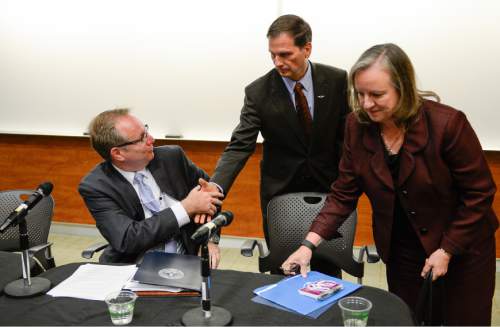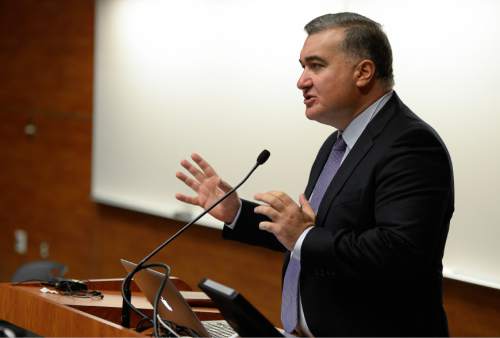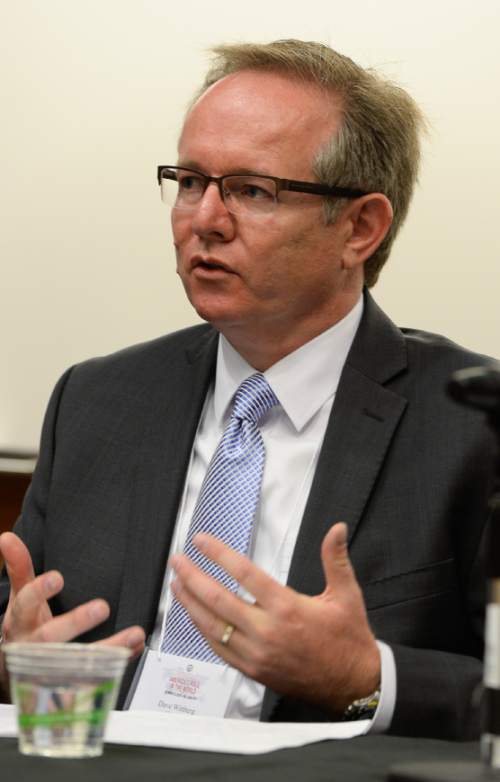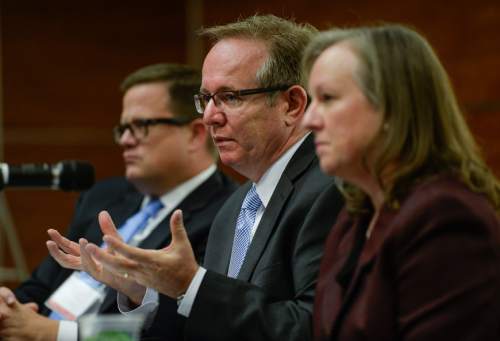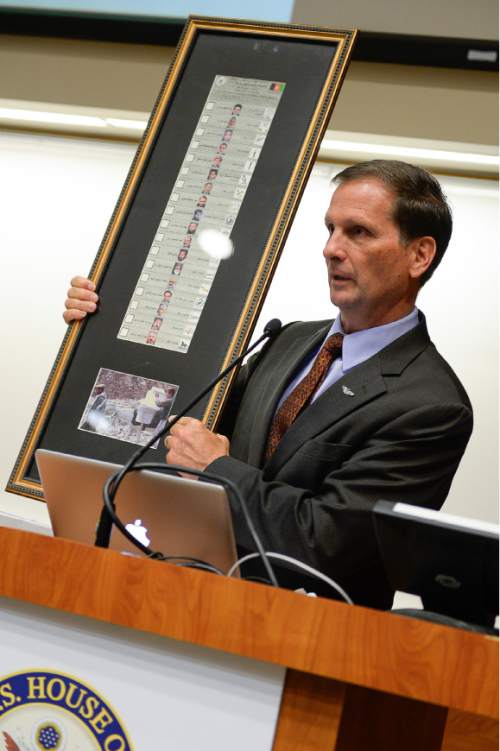This is an archived article that was published on sltrib.com in 2015, and information in the article may be outdated. It is provided only for personal research purposes and may not be reprinted.
Former government contractor Edward Snowden is "one of the most destructive traitors" in American history and has damaged the country, Rep. Chris Stewart, R-Utah, told a University of Utah audience Tuesday.
"For those who defend Edward Snowden, perhaps there was some value in making some things known to us," Stewart said, "but I assure you he is one of the most destructive traitors ever known to us in our history."
"For anyone who defends him," Stewart added, "it just tells me they don't understand what he's done to our country."
Stewart's remarks came at a conference on national security he and his staff organized. Stewart, who sits on the House Intelligence Committee and served 14 years as a U.S. Air Force pilot, was moderating a panel on cybersecurity when longtime Utah political observer George Zinn rose from the audience to ask what Utahns might hear in an upcoming speech from Snowden.
Snowden is scheduled to speak to a Park City audience, via satellite from Russia, on Dec. 5.
No one on the panel knew what to expect from Snowden's speech, but Stewart took the opportunity to criticize Snowden.
"He has been masterful at playing a very willing press," Stewart said.
Stewart said Snowden has been using the NSA's inability to discuss secret information against the agency. He said he has encouraged the NSA to be more forthcoming about what it does.
"I think we can be more open with the American people," Stewart said.
After the discussion, Stewart said some of the information Snowden revealed was helpful in raising concerns about privacy, but the congressman said documents released went far beyond issues of personal privacy.
Stewart said he does not consider Snowden a whistleblower and said he would like to see him "come home and face trial."
Snowden was working for a defense contractor when he gave documents — thought to be in the hundreds of thousands, though no one has provided a firm number — to journalist Glenn Greenwald. Among the revelations in the documents has been how the NSA had direct access to data streams from technology companies such as Apple, Yahoo, Google and Facebook, and hacked both enemies and allies.
The topic of Snowden arose near the end of the cybersecurity panel. Most of the discussion focused on cyberattacks against consumers and retailers, like Target and Home Depot, as well as attacks against the federal government.
One person on the panel was David Winberg, the director of NSA operations in Utah.
While other panelists appeared somewhat spontaneous in their remarks, Winberg read from prepared talking points that he said later had been approved by his bosses at the NSA. Winberg said he is a 28-year veteran of the NSA and has worked in intelligence gathering, foreign languages and operations. He said he is not in charge of the massive data center in Bluffdale.
"It's no secret that information is power," Winberg, 55, said in his prepared remarks. "When we know our adversaries' secrets and they don't know ours, we achieve an information advantage."
One audience member rose to say he thinks there aren't enough people explaining how important the NSA is.
"We're kind of handcuffed a little bit in that we are an intelligence agency and loose lips really do sink ships," Winberg responded.
Twitter: @natecarlisle


